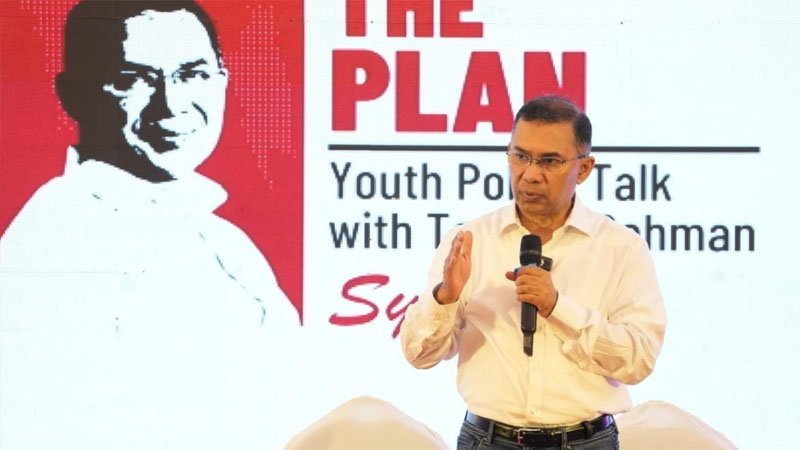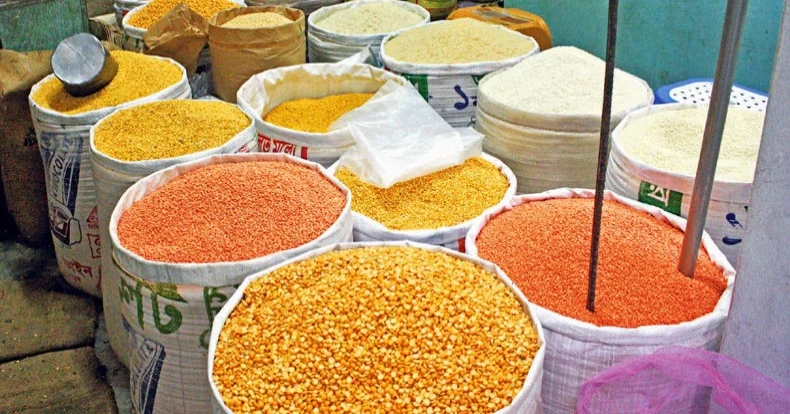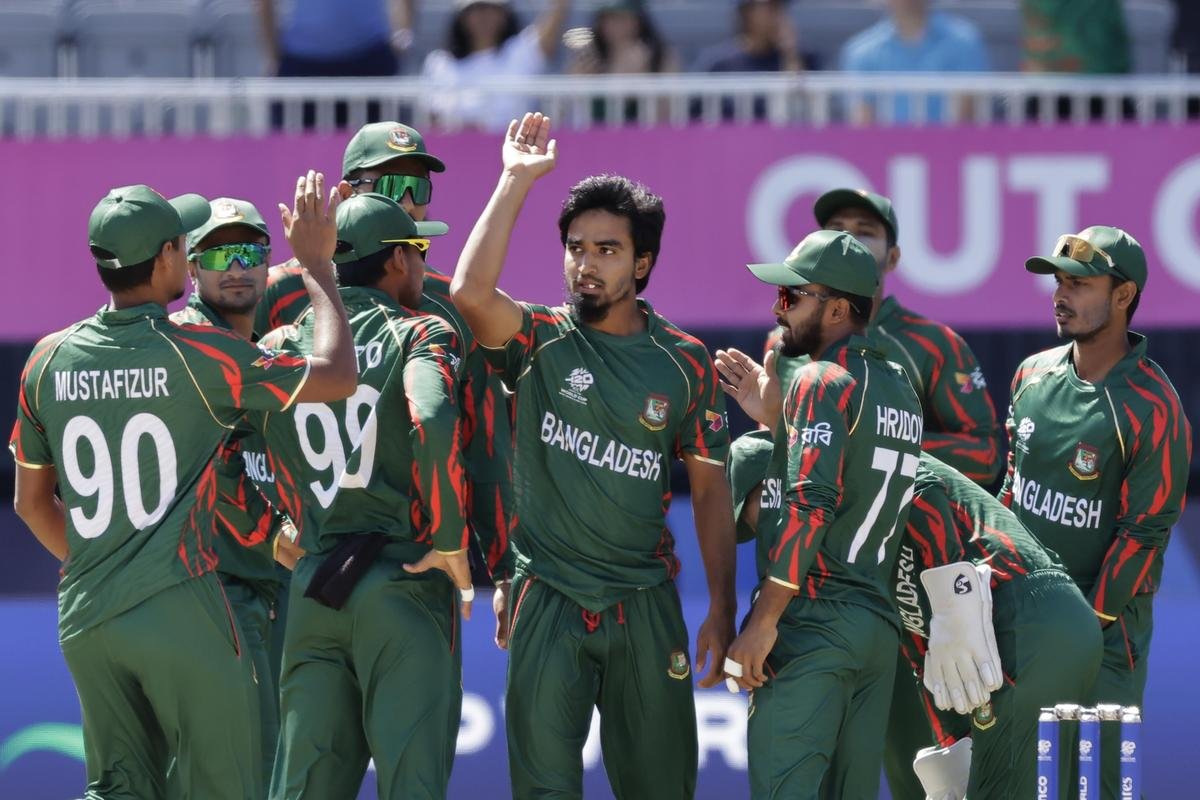Top 10 Private Universities for Journalism in Bangladesh

The Evolution of Journalism Education in Bangladesh: Top 10 Private Universities to Consider
The Rise of Journalism as an Academic Discipline
Journalism has evolved from an informal trade into a respected academic discipline over the past century. Globally, the need for truth-tellers, watchdogs, and storytellers has driven the formalization of journalism education. In Bangladesh, journalism initially thrived as a practical craft, learned through experience rather than academic study. However, as the media landscape grew more complex, the demand for structured journalism education became undeniable.
The transition from informal apprenticeships to classroom-based learning was driven by the realization that modern journalists need more than just curiosity and courage. They require knowledge of ethics, media law, digital storytelling, and investigative techniques. As media evolved—from newspapers to radio, television, and now digital platforms—so too did the skills journalists needed. This shift pushed academic institutions in Bangladesh to introduce journalism as a formal course of study.
Why Journalism Education Matters in Bangladesh
In Bangladesh, the media plays a crucial role in democracy, social awareness, and public accountability. Journalists act as watchdogs, truth-seekers, and community voices. However, the complex socio-political environment demands well-trained professionals who understand both the responsibilities and risks associated with this role.
The growth of media outlets, from traditional newspapers to online portals and TV channels, has opened doors for aspiring journalists. This has increased the need for academic programs that equip students with theoretical knowledge and practical skills. Modern journalism programs in Bangladesh focus on ethics, research methodologies, multimedia storytelling, and crisis reporting.
Top 10 Private Universities for Journalism in Bangladesh
1. University of Liberal Arts Bangladesh (ULAB)
A Pioneer in Journalism Studies
The University of Liberal Arts Bangladesh (ULAB) has established itself as a trailblazer in journalism education, being one of the first private universities in Bangladesh to recognize journalism as a crucial academic discipline. Its Department of Media Studies and Journalism (MSJ) offers a well-rounded curriculum that seamlessly integrates theoretical knowledge with hands-on practice, preparing students for the evolving media landscape.
Key Highlights:
- Global Curriculum: Designed following international standards, ensuring students receive a globally competitive education.
- Hands-On Training: ULAB TV and ULAB Radio offer students practical experience in broadcasting, reporting, and content creation.
- Industry Networks: Strong partnerships with leading media organizations provide opportunities for internships, workshops, and job placements.
Career Prospects:
ULAB graduates excel in various fields, including traditional media, corporate communications, NGOs, and digital content creation, becoming skilled storytellers, reporters, and media strategists.
2. Daffodil International University (DIU)
Technology-Driven Journalism Education
Multimedia Labs:
State-of-the-art facilities equipped with tools for video editing, audio mixing, photography, and digital publishing, enabling students to master essential multimedia skills.
Industry Exposure:
Regularly organized workshops, seminars, and media tours offer students hands-on experience and direct interaction with seasoned media professionals, fostering real-world learning.
Digital Journalism Focus:
Courses tailored to modern media demands, covering areas like social media strategies, data journalism, online news reporting, and multimedia storytelling to prepare students for diverse digital platforms.
Practical Learning Opportunities:
Students participate in field reporting, student-run publications, and media projects, encouraging creativity and strengthening their journalism portfolios.
Career Prospects:
Graduates excel in dynamic roles across digital media, broadcast journalism, content creation, social media management, and public relations, equipped with skills for a fast-paced media landscape.
3. Independent University, Bangladesh (IUB)
Bridging Theory and Practice
Key Highlights:
- Advanced Media Labs: State-of-the-art facilities for hands-on training in radio broadcasting, television production, and online journalism.
- Globally Experienced Faculty: A team of renowned academics and industry experts with diverse international media backgrounds.
- International Exposure: Opportunities for student exchange programs, global workshops, and study tours to broaden global media perspectives.
- Comprehensive Curriculum: A balanced approach combining media ethics, investigative research, and storytelling techniques tailored for both traditional and digital platforms.
- Career Opportunities: Graduates secure roles in national newspapers, TV networks, NGOs, and international media outlets, excelling as journalists, editors, and communication specialists.
4. East West University (EWU)
Fostering Investigative Storytelling
Key Highlights:
- In-Depth Investigative Reporting Courses: Specialized training in fact-based research, data analysis, and exposing social injustices through impactful storytelling.
- Modern Multimedia Facilities: Fully equipped broadcast studios and digital media labs designed for hands-on experience in television, radio, and online journalism.
- Industry-Focused Workshops & Seminars: Frequent interactions with renowned journalists, media experts, and industry leaders to keep students updated on current trends and challenges.
- Comprehensive Digital Storytelling Training: Emphasis on multimedia journalism, including video production, photojournalism, and interactive content creation.
- Diverse Career Opportunities: Graduates excel in investigative journalism, public relations, media consultancy, and corporate communication, often securing roles in leading media houses and NGOs.
5. Green University of Bangladesh (GUB)
A Blend of Creativity and Ethics
Key Highlights:
- Narrative-Driven Curriculum: Focuses on storytelling techniques, narrative journalism, and crafting impactful human-interest stories.
- Hands-On Learning: Students gain real-world experience through active participation in campus newspapers, radio shows, and digital platforms.
- Strong Industry Ties: Strategic partnerships with local and international media houses offer opportunities for internships, workshops, and career placements.
- Ethics-Centered Approach: Emphasizes the importance of media ethics, responsible reporting, and social accountability in modern journalism.
- Diverse Career Paths: Graduates excel in various sectors, including broadcast journalism, public relations, digital marketing, and content creation, with many pursuing roles in NGOs, media agencies, and corporate communication.

6. Port City International University (PCIU)
Excellence in Broadcast Journalism Education
Key Highlights:
- Diverse Academic Programs: PCIU offers both undergraduate and graduate degrees in Broadcast and Print Journalism, providing a strong academic foundation for future media professionals.
- Comprehensive Curriculum: The program covers essential topics such as media law, public relations, development communication, and investigative reporting, ensuring students gain a deep understanding of both the theoretical and practical aspects of journalism.
- Specialized Courses: Students can explore unique subjects like photojournalism, advertising, film studies, screenplay writing, and magazine editing, broadening their media skill set.
- State-of-the-Art Studios: PCIU boasts fully equipped facilities for television production, radio broadcasting, and video editing, allowing students to gain hands-on experience with modern broadcasting tools and technologies.
- Industry Exposure: Regular field trips, seminars, media visits, and workshops connect students with industry professionals and keep them updated with the latest trends in journalism.
- Affordable Education: With reasonable tuition fees, scholarships, and various forms of financial aid, PCIU ensures quality education is accessible to a wide range of students.
- Strong Career Prospects: PCIU graduates pursue careers as TV anchors, radio hosts, news reporters, program producers, content creators, and communication specialists in leading media houses.
7. Stamford University Bangladesh (SU)
Empowering Storytellers with Practical Media Skills
Stamford University Bangladesh has established itself as a reputable institution for media and journalism studies, focusing on equipping students with practical skills and theoretical knowledge. The university offers a curriculum that emphasizes hands-on training, preparing students for the competitive media industry.
- State-of-the-Art Multimedia Labs: Stamford is equipped with fully functional media labs that include facilities for video production, audio editing, and graphic design. Students gain hands-on experience in creating multimedia content, which enhances their technical skills and creativity.
- Interactive Learning Environment: The university promotes active student engagement through practical workshops, media simulations, and live reporting exercises, helping students understand real-world media dynamics.
- Experienced Faculty: The journalism faculty comprises seasoned professionals from the media industry, including journalists, editors, and communication specialists who bring their field experience into the classroom.
- Student Media Platforms: Stamford encourages students to contribute to campus media outlets, including newspapers, online blogs, and radio programs, fostering a culture of storytelling and critical thinking.
- Industry Partnerships: The university maintains strong ties with leading media houses, providing students with internship opportunities and facilitating networking with professionals in the field.
- Career Prospects: Graduates from Stamford find opportunities in print media, broadcast journalism, digital content creation, and public relations, often working in reputed national and international organizations.
8. Primeasia University (PaU)
Fostering Ethical and Investigative Journalism
Primeasia University is recognized for its commitment to producing ethical, skilled, and socially responsible journalists. The university offers a journalism program that emphasizes critical thinking, investigative reporting, and ethical practices, ensuring that students are well-prepared for modern journalism challenges.
- Strong Focus on Investigative Journalism: Primeasia’s curriculum includes specialized courses on investigative reporting, teaching students how to conduct in-depth research, fact-checking, and ethical inquiry to uncover hidden truths and hold power accountable.
- Media Ethics and Law: Understanding the importance of responsible journalism, Primeasia integrates media ethics and media law into its program, encouraging students to practice integrity and accountability in their reporting.
- Hands-On Training: The university provides media labs and editing suites where students learn multimedia production, including video editing, photojournalism, and broadcast reporting.
- Workshops and Seminars: Primeasia regularly hosts guest lectures, workshops, and seminars featuring industry professionals who share their real-world experiences and offer guidance on navigating the evolving media landscape.
- Field Reporting Opportunities: Students are often involved in field assignments, covering live events and engaging in real-time reporting to strengthen their investigative and storytelling skills.
- Internships and Job Placements: The university maintains collaborations with top media outlets, ensuring students secure internships and have access to career opportunities upon graduation.
- Career Prospects: Graduates from Primeasia pursue careers in investigative journalism, news reporting, public relations, and media consultancy, often working for major TV stations, newspapers, and online platforms.
9. Northern University Bangladesh (NUB)
Building Strong Foundations in Fieldwork and Research Journalism
Northern University Bangladesh (NUB) offers a journalism program that places a strong emphasis on field reporting and research-based journalism. The university is dedicated to training students to become insightful journalists who can blend traditional reporting skills with modern investigative techniques.
- Fieldwork-Oriented Curriculum: NUB integrates extensive fieldwork into its journalism program, encouraging students to engage directly with communities and real-world issues. This hands-on approach builds confidence and cultivates a deeper understanding of the stories they cover.
- Research-Driven Journalism: The curriculum focuses on data journalism, media research, and statistical analysis, helping students produce well-researched stories backed by factual evidence.
- State-of-the-Art Media Facilities: NUB provides students with access to modern broadcast studios, editing labs, and radio stations, where they can practice their technical skills in a professional setting.
- Ethics and Media Law: Recognizing the importance of responsible journalism, the program emphasizes courses on journalistic ethics, freedom of speech, and media law, ensuring students understand the legal boundaries and responsibilities of reporting.
- Student-Led Media Outlets: NUB encourages students to manage and contribute to campus-based newspapers, magazines, and radio programs, fostering a sense of responsibility and leadership in young journalists.
- Workshops and Media Tours: Students participate in regular media tours, visiting news agencies and broadcasting stations to gain firsthand knowledge of newsroom operations and media management.
- Career Prospects: Graduates from NUB work as field reporters, media researchers, news producers, and media analysts in a variety of local and international media organizations.
10. Shanto-Mariam University of Creative Technology (SMUCT)
Blending Journalism with Creative Storytelling
Shanto-Mariam University of Creative Technology offers a unique approach to journalism education by merging it with creative arts and digital storytelling. The university is ideal for students who aspire to work at the intersection of journalism, film, and content creation.
- Creative Journalism Curriculum: The program combines traditional journalism courses with training in visual storytelling, documentary filmmaking, and multimedia content production, preparing students for careers in both journalism and creative media.
- Digital Media Production Labs: Shanto-Mariam provides modern facilities for film editing, animation, photography, and audio production, equipping students with a versatile skill set for the digital era.
- Storytelling Workshops: The university organizes regular workshops on narrative journalism, photojournalism, and documentary filmmaking, led by industry professionals who mentor students in crafting impactful stories.
- Cross-Disciplinary Approach: Students are encouraged to take electives in graphic design, advertising, and creative writing, broadening their understanding of media and expanding their career opportunities.
- Ethical and Socially Responsible Reporting: Shanto-Mariam emphasizes courses on media ethics, social justice reporting, and environmental journalism, encouraging students to use storytelling as a tool for positive change.
- Hands-On Projects: Students participate in collaborative projects, creating short films, podcasts, and photo essays that are showcased in campus exhibitions and national media festivals.
- Career Prospects: Graduates from Shanto-Mariam thrive as documentary filmmakers, multimedia journalists, content creators, photojournalists, and creative directors in both national and international media industries.
The Future of Journalism Education in Bangladesh
The media landscape in Bangladesh is constantly evolving. With the rise of digital platforms, citizen journalism, and AI-driven newsrooms, journalism education must keep pace. Universities are now introducing specialized courses in data journalism, social media management, and fact-checking to meet industry demands.
Moreover, the ethical responsibilities of journalists have never been more critical. With the rise of fake news and misinformation, journalism programs must emphasize media literacy, critical thinking, and responsible reporting.
How to Choose the Right Journalism University
- Assess Curriculum Flexibility: Opt for programs that offer both traditional and digital media courses.
- Check Internship Opportunities: Real-world experience is crucial.
- Evaluate Campus Resources: Modern labs, studios, and libraries enhance learning.
- Consider Financial Aid: Many universities offer scholarships for deserving students.
- Visit Campuses: A campus tour can provide valuable insights into the learning environment.
Empowering Bangladesh’s Next Generation of Journalists
Journalism in Bangladesh has evolved from an informal craft into a respected academic discipline, essential for fostering transparency, democracy, and social accountability. As the media landscape becomes more complex and technology-driven, the need for well-trained, ethical, and adaptable journalists has never been greater.
The private universities highlighted in this guide play a pivotal role in shaping future media professionals. Institutions like ULAB, DIU, and IUB offer comprehensive programs that combine traditional journalism with digital storytelling, while East West University focuses on investigative reporting and multimedia production. Universities such as Shanto-Mariam University of Creative Technology and Stamford University Bangladesh integrate creative storytelling into their journalism programs, expanding students’ skill sets beyond conventional reporting.
Port City International University (PCIU) stands out for its strong emphasis on Broadcast and Print Journalism, offering hands-on training in modern broadcast studios and specialized courses in media law, film studies, and investigative reporting. PCIU’s focus on industry exposure, affordability, and diverse academic tracks makes it a top choice for aspiring media professionals.
These institutions not only provide technical skills and theoretical knowledge but also instill core values of media ethics, critical thinking, and social responsibility. Their industry partnerships, modern facilities, and real-world learning opportunities prepare students to navigate the fast-paced media world confidently.
In a country where journalism plays a crucial role in shaping public opinion and safeguarding democracy, investing in quality journalism education is key. Whether students aspire to become investigative reporters, content creators, broadcasters, or communication strategists, these universities offer the foundation needed to thrive.
The future of journalism in Bangladesh lies in the hands of passionate, ethical, and innovative storytellers. With the right education and guidance, today’s students can become tomorrow’s thought leaders, shaping narratives that drive positive change and strengthen Bangladesh’s vibrant media landscape.
Explore your options, follow your passion, and contribute to Bangladesh’s vibrant media landscape. Your journey as a truth-seeker starts here!







